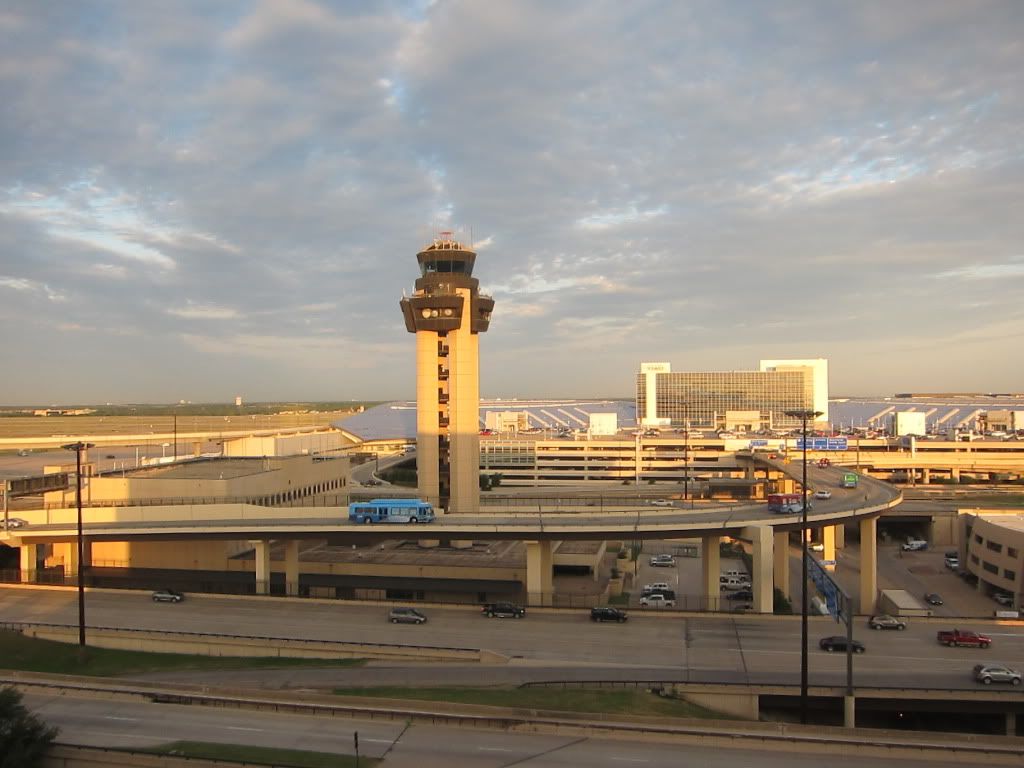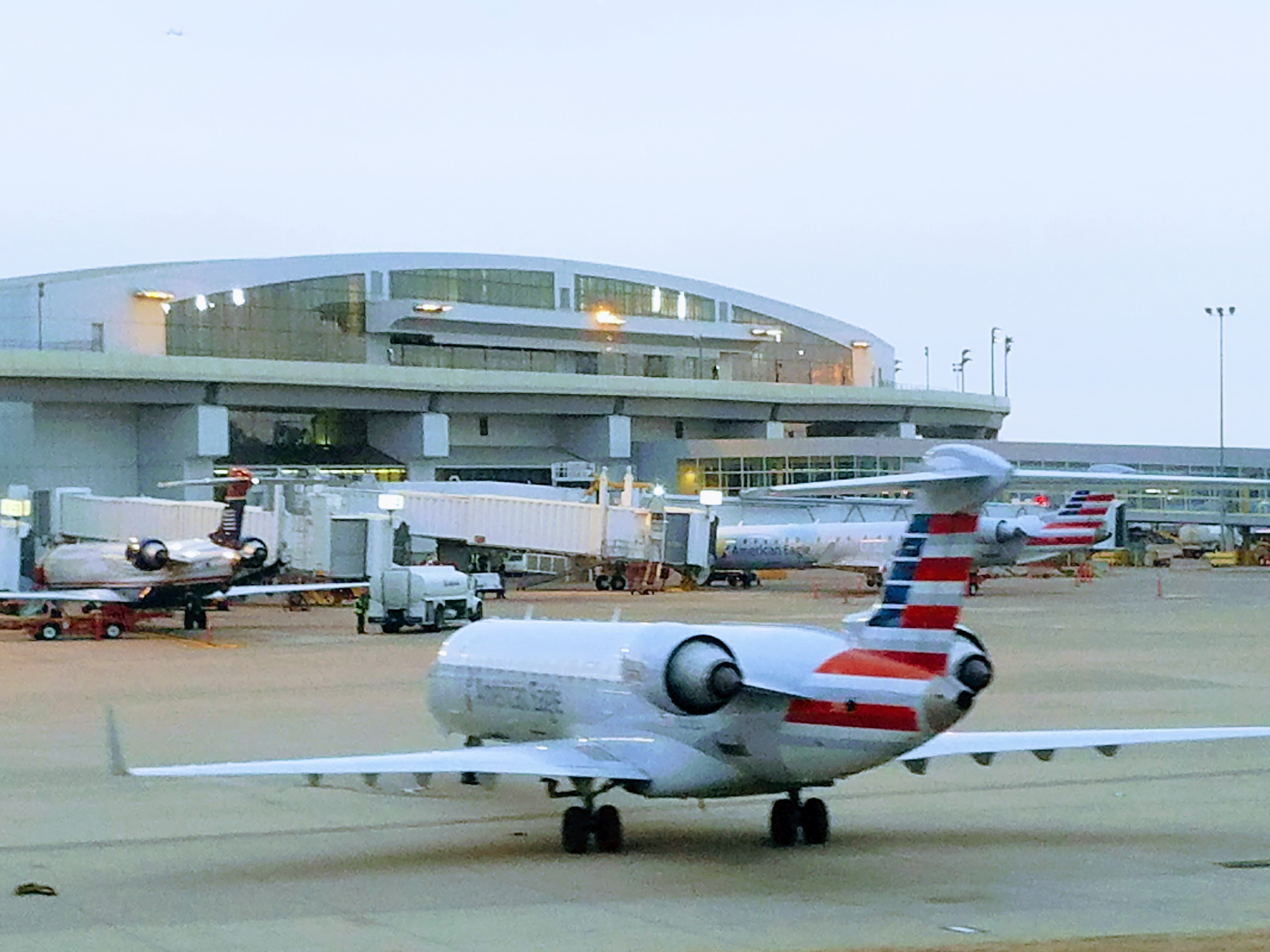There’s two kinds of luggage, carry on and lost. That’s especially true at American Airlines, but they’re doing something about it.
I do my best to avoid checking a bag. I even try to avoid needing overhead bin space. On an overnight trip I’ll just use my laptop bag which allows me to board last. For longer international trips there’s usually no way for me to avoid it.
More people check bags on Southwest Airlines than any other carrier, even though they don’t operate long haul international flights across the Atlantic or Pacific. Checked bags are bundled in their ticket price and don’t cause extra.
Yet airlines who specifically charge for checked bags, like JetBlue, Alaska, United and American are more likely to lose your luggage than Southwest, according to Bureau of Transportation Statistics data released last month. American Airlines was the only U.S. carrier to mishandle more than 1% of checked bags in June – and more than 450,000 year-to-date.

American’s largest hub is Dallas – Fort Worth. When it opened 48 years ago it was build to house hubs for American, Braniff, and Delta, largely self-contained in different terminals. The older terminals are convenient for local traffic – check in at the terminal you’re departing from, pick up your bag at your gate.
However American now operates out of all five existing terminals (the airport is building a sixth, terminal F) utilizing 140 gates. The airport’s grounds are larger than the island of Manhattan. This presents challenges:
- Moving people for connections, mostly done by airport train
- Moving spare parts for maintenance, which can be consolidated by trying to keep fleet times contained to a specific terminal
- Moving checked bags from one flight to another

American isn’t prepared to invest in RFID tracking or electronic bag tags – IT investment and capital investment – they’re doing a lot with process improvements and those are driving down their rate of mishandled bags.
Specifically, American has made progress trying to get connecting bags off of planes first to provide more time to connect bags. But there’s still the complex challenge of moving bags across terminals and to specific flights.
With separate terminals, and such a large operation, American hasn’t had a single centralized bag room. Each terminal has its own. The way connect bags worked until recently is described in a recent internal note to employees viewed by View From The Wing,
Until recently, Fleet Service team members from each mainline terminal would bring bags to every flight, which meant multiple trips from multiple terminals to multiple gates.
According to the airline’s director of baggage operations for the airport, fleet service crew chiefs came up with a plan to “virtually combine the separate mainline bag rooms into one.” They assign connecting bags by onward destination based on historic data on which terminal each flight is likely to use.
While bags with shorter connection times are delivered aircraft to aircraft, bags departing on later flights are now brought to a central location. “We’re assigning a home base for groups of cities,” explained Crew Chief Tim Bapp.
“This makes life a lot simpler because everyone knows where to go with each bag. We know that Miami bags go to the Terminal A bag room, Mexico City bags go to the Terminal C bag room and El Paso goes to D.”
The team looked at historic data to determine the likely location at DFW where each flight departs. Since flights to MIA tend to leave out of Terminal A, connecting bags for MIA departures (leaving in two hours or more) are now sent to the Terminal A bag room.

They also co-locate nearby airports in the same bag room so that luggage can be re-routed as passengers change destination (usually during irregular operations). Washington National, Dulles, and Baltimore use the same bag room. The airline’s development path includes programming this information into the airline’s gating tool “SIMBA.”
By handling specific destinations individual employees move more bags to each destination, focusing on 8 to 10 flights per shift instead of up to 20 flights. Since launch in April DFW mishandled bags have fallen 17% against pre-pandemic levels.


I do not fly with AA even though DFW is my hub. No thanks
Talk all you want about American. They suck in all ways possible; but is your airline. Enjoy the ride. I fly LH. In the exceedingly rare case that my bags don’t fly with me, I get a message beforey flight leaves. When I land, it tells me I will get it next day. No b. S. Just results. But, you can keep on flyingAmerican because you are top elite. But you get screwed like the rest. Enjoy.
How do bags move with passengers arriving in terminal A with a 30 minute connecting time departing out of terminal D? Passengers at times do not make the connection with the door closing 10 minutes before departure. Drive time between A and D can be up to 10 minutes. Also how do you man for such a operation?
DFW is poorly designed. They should have admitted defeat years ago when they planned Terminal D. Terminal D should have been closer to Terminal B, longer, like reaching to where Terminal F will be and have concourses.
The old design was good for O&D flights. Terminal A is too far from Terminal C. Too much space is wasted between the 2 terminals.
Blame Trump.
Terminal F will never happen.
Come on, Gary. Even if the trite homily about lost bags or carry on was right (it’s not), what would you suggest people do? Do you honestly travel to Australia or the Maldives with only carry on bags?
Then there’s the jerks who try to board with two or more large bags. We’re talking really big bags that stand zero chance of fitting under the seat in front of you. The problem is, there simply isn’t enough space for anywhere near half of the passengers to carry that many bags of that size and unfortunately a surprising amount of the time the selfish people with these large bags aren’t forced to gate check them. That creates a cascading effect of less space for everyone because of a few people taking a wildly disproportionate amount of overhead space. Then the latecomers end up being forced to gate check their single medium sized bag at the last minute, which often as not delays the flight.
I’ve said this before but in my decades of travel I have never had a bag lost, although I have had some delayed. Why not simply suggest that people buy Airtags?
@Alan
I mean, in the exceedingly rare case your leftist controlled country airline isn’t on strike, at least you got somewhat smooth operations LOL
@BBK Oh the irony. You’re calling LH leftists, but the airline stealing my property to redistribute amongst the baggage handlers is American!
Love it when readers say they never fly an airline but fail to say who they do fly. So the reader who does not fly AA must drive to Hawaii. And the one who only flies LH drives domestic.
Negativity without facts or reason does not support your opinions so get a life and get over it
I think AA should ask FedEx or UPS for help in sorting bags. Both package delivery services sort 2-3 million overnight packages in about 2.5 hours. Clearly they have mastered sorting packages while AA has not a clue. And, in actuality, ATL is a busier hub than DFW. Delta seems to sort bags much more accurately than AA, as well!
I’ve flown AA for 30 years from DFW. I’ve know three AA workers well over those years. Almost every AA person encountered on flights was kind and helpful. Checked bags have never been lost and delayed once because I got on an earlier flight but bag was delivered in the morning. Delays have been minimal, 30 – 45 minutes at most, and for valid reasons, safety. Please be more considerate of AA pilots and staff. They have difficult jobs and baggage staff work in temps from freezing to 175 deg. plus inside cargo hold for very long hours. Texas doesn’t have true seasons, heat is the norm, along with frequent severe storms and wide open areas that can have bad cross-wind issues for the 8 runways over the approximately 18 acres of airport grounds. My sincere gratitude to all of DFW and AA for keeping me safe and bringing me back home weekly. Remember to say “Thank You” when deplaneing….you arrived safely.